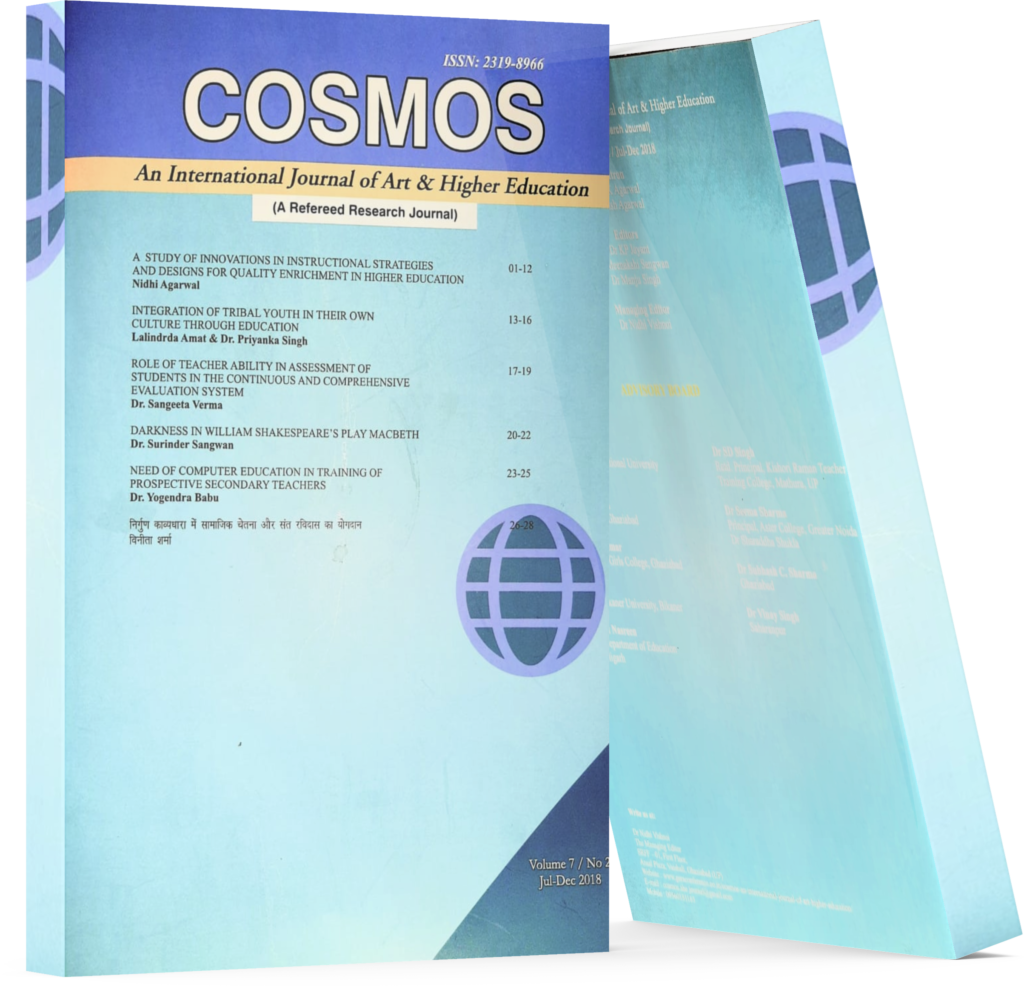A Study On Academic Achievement Of Children From Happy And Divorced Families
Keywords:
Academic Achievement, Children, Happy, Divorced, FamilyAbstract
Academic success is measured by a student's performance in school, including their grades, test results, and academic performance. It is frequently quantified using academic measures like grade point average (GPA), test scores, and other quantitative criteria. Academic success, however, can also include qualitative traits like creativity, critical thinking, and problem-solving ability. Academic success is crucial to a student's professional and academic success since it affects their chances of pursuing higher education and job growth. Academic success is fundamentally about gaining information and skills through formal schooling. This entails mastering the subject's knowledge, cultivating critical thinking techniques, and improving problem-solving capabilities. These abilities are necessary for achievement in a variety of life endeavours, such as job, higher education, and personal development. In reality, particularly in the professional sphere, academic accomplishment is frequently seen as a major indicator of future success.
Downloads
References
Kumar, M. & Singh, M. (2021). Parental conflict and academic achievement of children
from divorced families: Mediating effect of personality. Journal of Divorce & Remarriage, 62(2), 147-164. doi: 10.1080/10502556.2020. 1781448
McLanahan, S., & Sandefur, G. (1994). Growing up with a single parent: What hurts, what helps. Cambridge, MA: Harvard University Press.
Magnuson, K. & Berger, L. M. (2009). Family structure and children's educational outcomes: Blended families, stylized facts, and descriptive regressions. Demography, 46(3), 545-571. doi: 10.1353/dem.0.0060
King, V., Harris, K. M., & Heard, H. E. (2004). Racial and ethnic diversity in nonresident father involvement. Journal of Marriage and Family, 66(1), 1-21. doi: 10.1111/j.0022- 2445.2004.00001.x
Hetherington, E. M. & Kelly, J. (2002). For better or for worse: Divorce reconsidered. New York, NY: W. W. Norton & Company.
Singh, Navdeep (2014). A Study on Cooperative Defense Against Network Attacks. Cosmos Journal of Engineering & Technology, 4(2), 1-4.
Kumar, K. Praveen (2014). A Study on Cloud Computing. Cosmos Journal of Engineering & Technology, 4(2): 1-3.
Anuradha (2015). Study in Technological Challenges in Digital Libraries. Cosmos An International Journal of Art & Higher Education, 4(2), 9-11.
Goel, Agarwal, Nidhi (2008). A Global Change in Education through Information Technology and Communication. Enterprises Information Systems & Technology, Mac Millan Advanced Research Series, ISBN: 13: 978-0230-63516-6, 124-126.
Mishra, Dr. Pramod and Sharma, Pradeep Kumar (2018). Digital Literacy Competencies in The 21st Century. Globus Journal of Progressive Education, 8(2), 1-3.
Kumar, Puneet (2008). A Comparative Study of Information System’s Security by using Graphs. Enterprise Information Systems & Technology, MacMillan India Ltd., pp 222- 227, ISBN 0230-63516-4.
Vashishtha, Dr. Sangeet and Sharma, Pooja (2018). Big Data- New Trend of Change in Complex Corporate World. Globus An International Journal of Management & IT, 10(1), 4-6.
Yan, Zhi (2018). Research on Key Technologies of Cloud Computing Platform in Vocational Skills Competition [J]. Journal of Changsha Institute of Civil Affairs, 25(01), 116-118.

